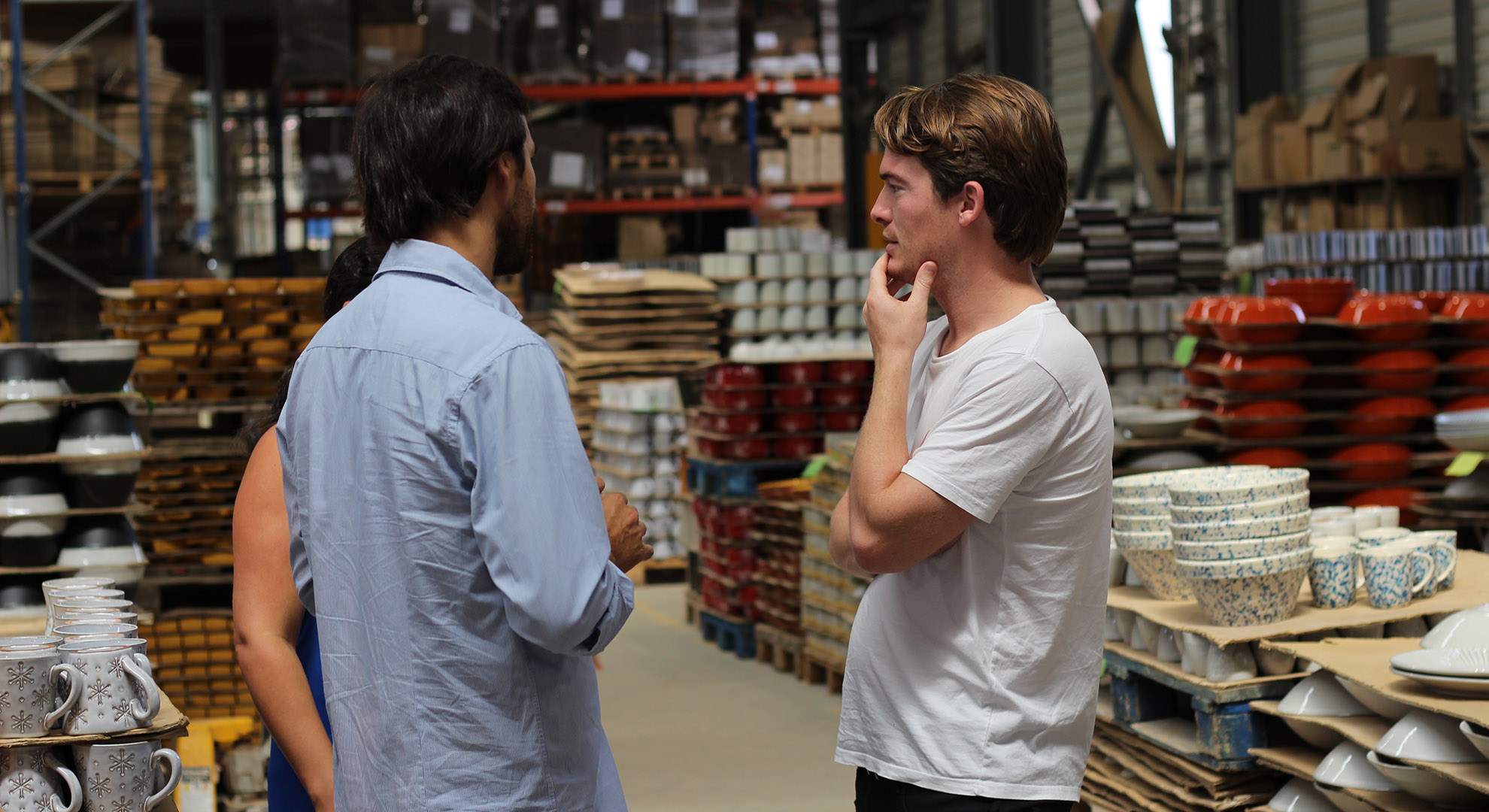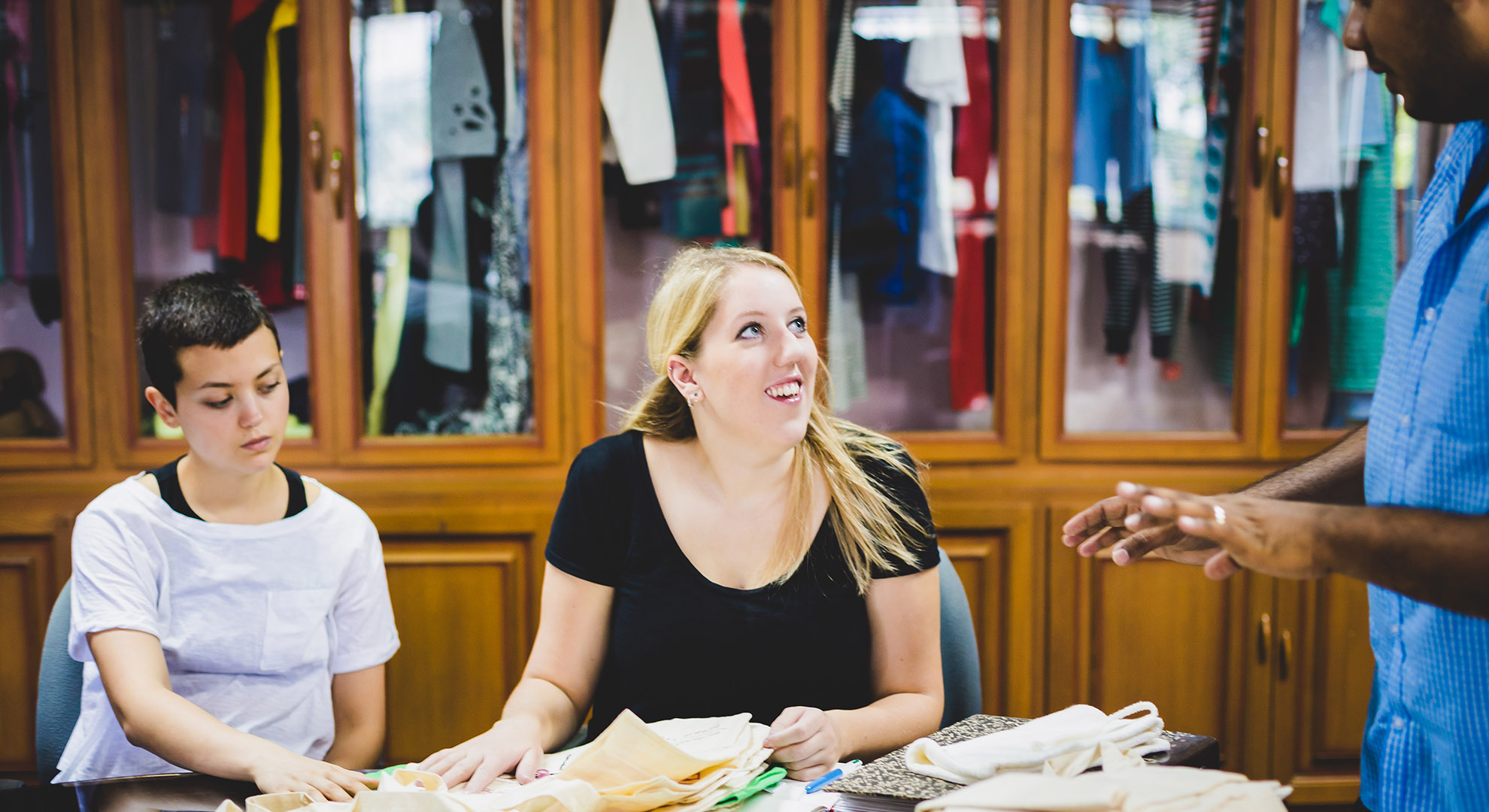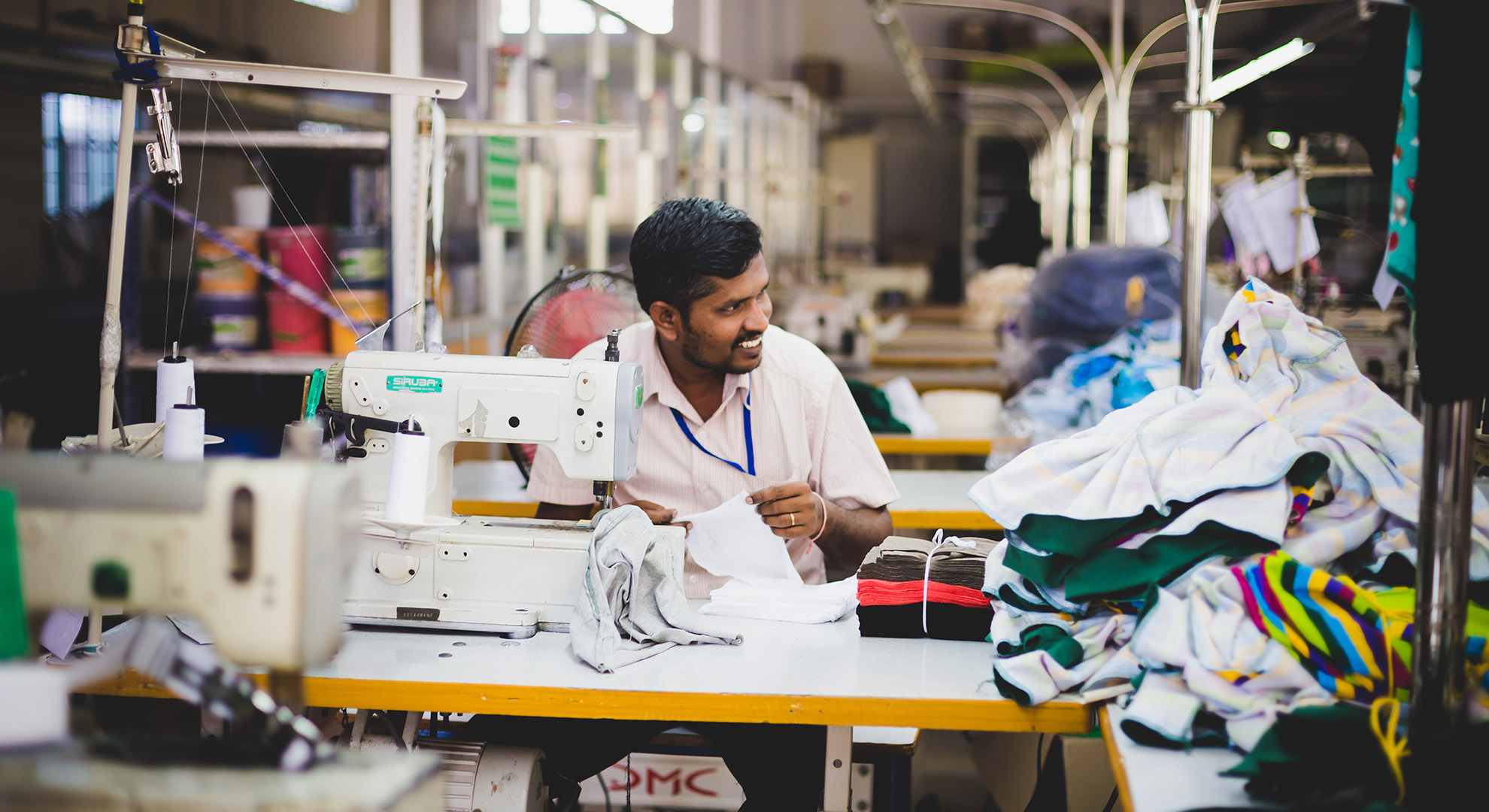Chain Reaction
The key to ethical consumerism is the supply chain
Five years on from the devastating 2013 Rana Plaza factory disaster in Dhaka, it has become clear that the promises made by the European brands who make their clothes in facilities across Bangladesh have not been fulfilled. More than 1,000 people died when the eight-storey building collapsed, shining a harsh spotlight on the circumstances in which the affordable clothing we take for granted in the West are made. In light of one of the incident, more than 250 companies signed an accord to improve working conditions in the factories they use in the country, but last month a Dhaka court ordered the group to cease its operations, after claiming that checks on 500 factories were still incomplete.
It’s a series of events that highlights how little we know about the provenance of the goods produced internationally, despite our growing demand for ethically produced goods. In October 2017, Fairtrade International announced that global sales of the ethically farmed products it certifies had risen by 8%, reaching €8.5bn worth of transactions. The market for ethical manufactured goods is harder to gauge, as there’s no globally recognised consumer-oriented certification scheme of the same nature for retail goods. But there are clear signs that demand in the area is growing: in 2015 a report by research body Nielsen said that 66% of consumers worldwide would pay more for brands committed to a positive social and environmental impact – up from 50% just two years before.
The Ethical Trading Initiative, an organisation that works with retailers, suppliers and brands in several countries to improve the working conditions in the global supply chain, believes its members are starting to feel the pressure. “Consumers are now able to amplify their concerns much more effectively and quickly mobilise networks through social media which is powerful,” it said in a recent trends report. “The fear of being the company caught out still drives action.” But it added that, despite efforts like these and the growing power of networked consumers, it can be difficult for people to actually find out how and where goods are made: “They expect brands to take care of that.”
It’s an observation that cuts to the heart of the problem. The ETI itself was founded in 1998 in response to the lack of credibility of businesses’ efforts to meet International Labour Organisation standards for workers rights, as supply chains were globalised and fragmented –businesses policed themselves and monitored behaviour in an inconsistent manner. Two decades on, who can honestly say they are confident that the clothes they wear, the furniture they sit on and the mobile phones they rely on are produced under conditions they’d be comfortable with? Incidents such as the Rana Plaza factory and continual reports of poor working conditions in Chinese factories are a reminder of the extent to which consumers place their faith in businesses to make ethical decisions.

Gus Bartholomew, co-founder of Supply Compass, visiting a terracotta factory in Portugal
The fundamental ethics of international outsourcing is an issue for another day: as it stands, the manufacturing framework for designed goods – from fashion to furniture – is a global one, and as long as the pressure to produce quickly and cheaply remains, it is likely to stay that way. But the exploitation that occurs within that framework arguably thrives because of a lack of transparency – distance, complexity and murky communication allows unscrupulous businesses to wash their hands of workers’ welfare and forces the rest to take a leap of faith or turn a blind eye. Meanwhile, manufacturers struggle to keep up with onerous and expensive rounds of audits from multiple brands, with no guarantee of any consistency. “Change will happen when everyone starts start working better together and singing from the same hymn sheet,” says Flora Davidson, co-founder of Supply Compass, an organisation that claims it’s on a “mission to create the world’s most trusted supply chains”. Its solution is to better leverage technology. “Supply chains are stuck in the dark ages. They are offline, inefficient and fragmented; communication happens through email, design development through Excel. Our aim is to bring global supply chains into the digital age.”
Their system is a “software as a service-enabled marketplace” that matches up brands with vetted manufacturers, each of which has a profile with films, product photos, data and certification information about it. All communication – from quotations to sharing designs, placing orders and requesting samples, and organising testing and delivery – can be done through its online platform. Crucially, the Supply Compass team visits and handpicks each of the factories, paying equal attention to their needs of manufacturers and brands. Technology, in this case, is not a substitute for human relationships, but a tool to help them work together better.

Charlotte Instone, founder of Know the Origin, working with a supply team in India. Image courtesy of Know the Origi
Similarly, Know the Origin is a fashion brand that is seeking to provide consumers with a glimpse of the manufacturing process – something it’s founder Charlotte Instone believes is increasingly in demand as shoppers become more aware. It was the Rana Plaza collapse that prompted her to set up her initiative, which claims to have a 100% traceable supply chain and personally vetted maker. “The high levels of secrecy within supply chains has allowed fashion industry standards to rot,” she says. “61% of brands don’t know who made their clothes and 93% don’t know where their fabrics come from.”

Garment Factory Worker in India. Image courtesy of Know the Origin
Perhaps more interestingly, Instone is looking at the potential of using blockchain to provide greater protection to makers and buyers. The technology behind cryptocurrencies such as Bitcoin, is increasingly being hailed as a method that can give greater oversight of an item’s provenance: each can be given a unique tag from that the buyer can trace throughout its journey using smart technology. Blockchain is already being deployed in the context of food production: systems such as Jetstream Africa and Agromovil in South America are using it, in combination with smartphone technology, to better connect small farmers with the rest of the supply chain – both to make the system more efficient and less wasteful and to improve payment systems. This builds on the leap forward already made by the expansion of mobile phone access and coverage across the developing world, which enabled the success of systems such as Laborlink, which uses basic technology such as text messages to gather direct feedback from factory workers about their employment conditions.
Ultimately, however, transparency – like technology itself – is merely a tool for improvement, not the goal in itself. Initiatives such as Supply Compass and Know the Origin can only have limited reach until they become mainstream – and that relies not only on consumers and smaller brands knowing more how their products are made, but on big businesses acting on that information. Recent news that, five years on, the companies who pledged to improve conditions at the Rana Plaza factory have failed to make the necessary changes illustrates how even the most public of shamings can have little impact. Perhaps the fundamental ethics of global outsourcing per se, is the overriding question after all.
Main Image: Garment worker in Bangladesh. Alamy Stock Photo
